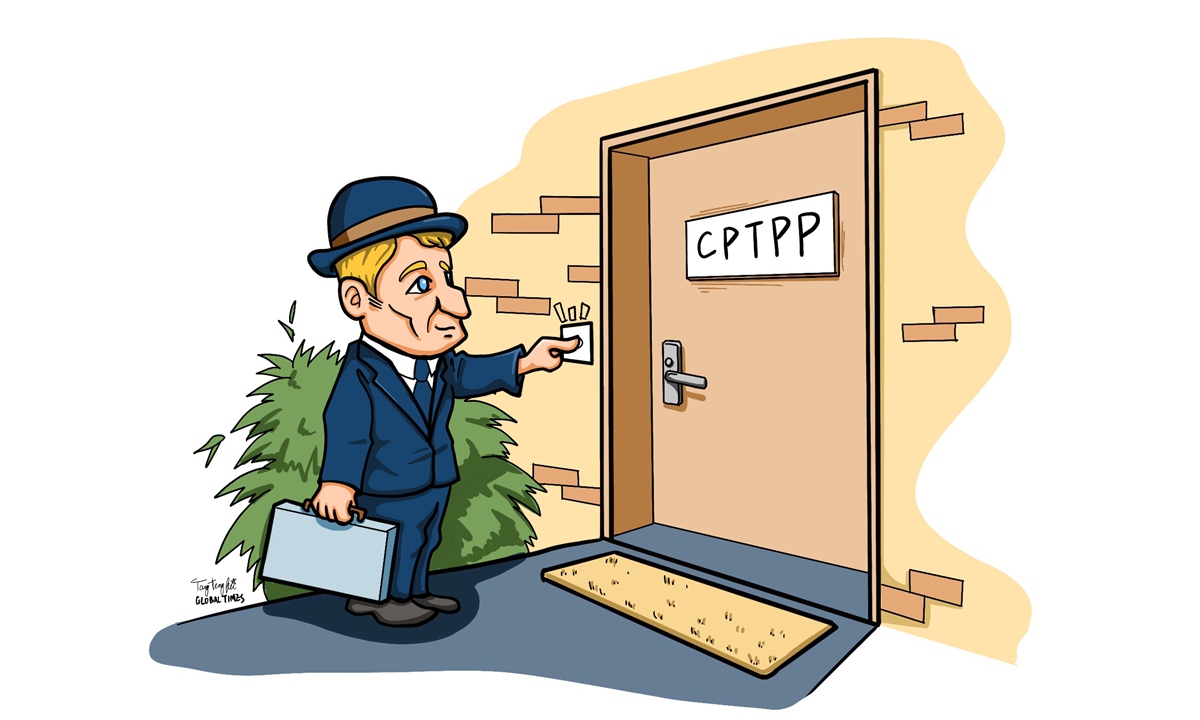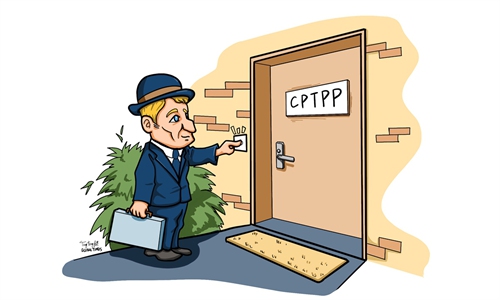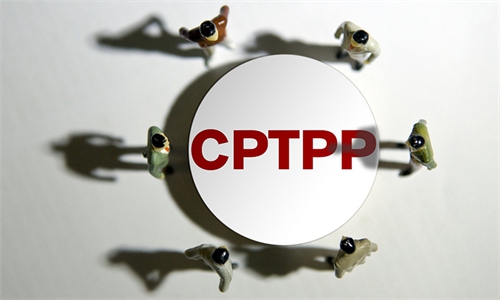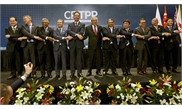
Illustration: Tang Tengfei/GT
The UK reportedly started on Tuesday the formal negotiations to join the Comprehensive and Progressive Agreement for Trans-Pacific Partnership (CPTPP), an 11-nation trading bloc in the Asia-Pacific region.
UK International Trade Secretary Liz Truss touted joining the CPTPP as a "glittering post-Brexit" prize in a statement, noting that "This part of the world is where Britain's greatest opportunities lie," according to media reports.
Since leaving the EU, Britain has been actively seeking to build its own trade network and made no secret of its intention to pivot its trade interests toward the Asia-Pacific region.
Many view joining the CPTPP as a crucial step in Britain's new trade vision, since a successful inclusion to the CPTPP will enable the UK easier access to the world's fastest growing economic region.
While some may argue that the CPTPP is unlikely to boost Britain's exports due to the lack of trade complementarities between the UK and CPTPP member countries, still the move by the UK represents a welcome trial that may contribute to a new international trade pattern coming into being as a result of strengthened interactions between European countries and Asian supply chains.
The opportunity behind such possibility is just as important for the CPTPP. Since the establishment of the CPTPP, its expansion of membership has attracted great attention and interests. This is because although the CPTPP has been considered as a higher standard free trade agreement with high level free trade rules, its limited economic and trade capacity has had many doubt how much of a role the trade pact could play in facilitating regional economic integration.
The original Trans-Pacific Partnership (TPP), which never came into effect due to the US withdrawal, was intended to represent 40 percent of the global economy, while the CPTPP is equivalent to about 13 percent of global GDP and around 14 percent of world trade.
After losing the massive American market, the CPTPP has been under pressure to prove its trade potential to the world. So expanding the trade pact by including new members will not only open up new market opportunities for existing members, but will also enhance the economic status of the pact.
As such, the negotiations between the UK, a major economy, and the CPTPP are expected to be closely watched by other parties for clues as to their criteria for new members and the consequent impact on global trade patterns.
As long as the CPTPP doesn't revert to resembling geopolitical game, a pragmatic approach to expansion is bound to attract more interests from other countries in the future. Fundamentally speaking, how to generate momentum for the CPTPP advancing the integration of regional economic and trade cooperation is the real issue that member states need to focus on.



